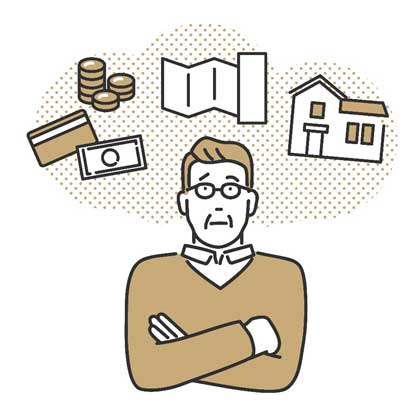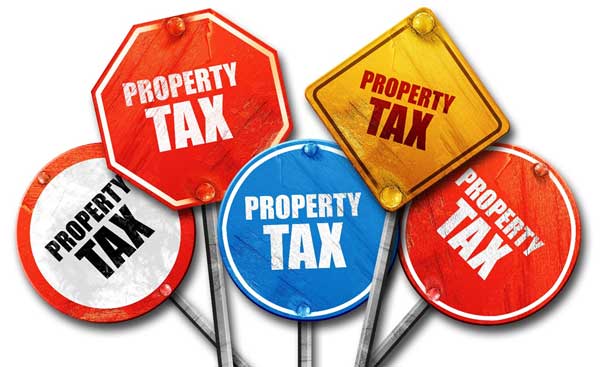Once you finally purchase your first home, you will probably be excited to plan out all the new space that you now own. While you are in the process of planning out how you will use your new property, one thing you will need to remember are the impending property taxes that you will now have to pay annually.
To be clear, property taxes are something that will be tacked on separately from your mortgage payments. One of the common misconceptions people may have is that these things can be paid for simultaneously. On this page, we will cover all that you need to know about property taxes so that you will be prepared for your first tax season as a homeowner.
What Are Property Taxes?
Property taxes are not the invention of modern governments. In fact, they date back to ancient times. It didn’t take long for governments in the past to realize that if they had property taxes that they would be able to finance great feats such as building wonders and having social programs. Today, property taxes are a staple of the funding used by local jurisdictions in the United States.
Local Jurisdictions Depend on Them
Federal funding doesn’t tend to reach over to local county governments that well. Although some federally-funded projects do reach down to local governments, they aren’t enough for local authorities to handle all the projects they need to fund, such as public schooling. In fact, those who live in areas with higher property tax rates tend to enjoy higher-quality schools in their area.
They Are Paid Annually Using Your Home’s Value
Each tax season, you are required to file property taxes with your local state government as part of your annual taxes. Local counties have your property already on record with the latest assessed value. As we explore the process of property tax calculation below, we will discuss exactly how this tax balance is calculated. This way, you can start estimating how much you will owe this year for your property taxes.
They Are Not Federally-Mandated
One of the most important pieces of information that you need to understand regarding property taxes is that there is no set amount delegated by the federal government. Instead, local counties are the ones who decide how much you owe each year for property taxes. Therefore, anybody who wants to pay the lowest possible property taxes should start by considering where they live. Since there is no getting out of property taxes, it’s important to keep the tax rate in mind before purchasing a home.
How Much Do You Pay in Property Taxes in Long Island?

In Long Island, the two main counties to consider are Nassau and Suffolk County. In Nassau County, you can expect to pay an average of 2.24% of your home’s assessed fair market value. Suffolk County is a fraction more expensive, clocking in at an average of 2.3% of the assessed fair market value. Typically, this means that people will pay an average of about $11,232 per year just on their property taxes. In order to only pay the fair amount, it’s important to know how to calculate how much you owe.
How Do You Calculate Property Taxes?
There are some things that you will need to understand if you want to know how to calculate your annual property tax rate. Regardless of where you live, there are some formalities that you will need to be aware of. Below, we will cover all that you need to know about how to calculate your property taxes. Keep this in mind if you are new to being a homeowner.
Assessed Value & Fair Market Value
The fair market value of a home is often different than the assessed value that is formally prepared by a county assessor. However, the assessed value is what will be used in the formula we share below for calculating your annual property taxes. If you are unsure what this figure will be, start by using the amount you paid for the home. If you have lived in a home for a while, though, keep in mind that your assessed value has probably gone up.
Assessment Ratio
Each county jurisdiction will have an assessment ratio that is determined by local authorities. Depending on where you live, this can be 10 to 100 percent of your home’s value. When calculating your property taxes, the assessment ratio will be multiplied by the home’s value to help determine your property tax rate. Therefore, be sure to know what this number is.
Millage Rates
If you translate the word “mil” into Spanish it means the number 1000. This is an easy way to help you remember what millage rates are. Just like assessment ratios, they are multiplied by your home’s value to determine how much you will need to pay in property taxes. The millage rate is used to describe how many dollars per thousand dollars you owe in taxes. 10 mils, for example, means that you are liable for $10 in every $1000 of assessed value.
A County Assessor Usually Does These Things
One of the main questions people run into once they understand how property taxes work is how their home’s assessed value is determined. To determine your home’s value, a county assessor will come by every year, 5 years, or whatever your local jurisdiction goes by. They will be the ones to determine your assessed value.
The Formula for Calculating Property Taxes:
Since the above description may not have been clear enough for those who would rather see the precise equation, we have also included the typical calculation that you can use for estimating your property taxes below. Make sure to consult with your local authorities for your assessment ratio, millage rate, and assessed value.
Assessed Value x Assessment Ratio x Millage Rate = Total Property Tax
5 Ideas for Securing the Lowest Possible Property Taxes
If you are new to property taxes, you might be on the lookout for how you secure the lowest possible taxes. Below, we have listed 5 ideas for you to keep in mind while trying to secure the lowest possible annual property taxes.
1. Buy a House in an Area with Lower Property Taxes
As we briefly discussed above, one of the most important things to consider is the location of your home. Specifically, what county that it resides in. This county will be the one that has the final say on what your assessed value, millage rate, and assessment ratio are. In other words, they directly control what you will pay each year for property taxes!
2. Don’t Get the Most Expensive Home
The more expensive your home is, the more you should anticipate paying each year for property taxes. Therefore, if you are still on the lookout for your new home and want to avoid paying exorbitant property taxes, try to get a modestly-priced home. Otherwise, your property value will be higher at the end of the day. Although it is tempting to get that million-dollar mansion you were dreaming of, this will also result in higher property taxes than a modestly-sized $500,000 home.
3. Calculate Your Estimated Taxes While Accounting for Growth
One of the common occurrences we see with homes is that they tend to increase in value over time. Therefore, keep in mind what kind of salary you have now, what you anticipate in the future, and remember that you will likely have increasingly-expensive property taxes to pay each year. The best rule of thumb is to estimate to pay more than what you actually anticipate paying. This way, you can end up budgeting well and still save some extra cash in your savings at the end of the day.
4. Don’t Invest Too Much in Remodeling
One of the ways that you can ensure that you will only have to pay a particular figure for your property taxes is to avoid too much remodeling and investment into your home. As you invest in your home, your value will also start to climb up. As a result, you will also have to start paying more in property taxes. Therefore, those who want to avoid high property taxes should be sparing with upgrades.
5. File Tax Grievances
If you think that your home’s assessed value is too high, you will feel that you are paying an unfair amount of taxes. In these instances, the only viable option to consider is filing tax grievances and formally challenging your home’s assessed value.
Need Help With Tax Grievances?
If you live in Suffolk or Nassau County, then Heller & Consultants Tax Grievance is a great company to consider hiring to start paying your fair share of taxes, and not a dime more! Heller & Consultants won’t charge you a penny until your assessed value is formally changed. Give us a call today in Nassau County: (516) 342-4849 or in Suffolk County: (631) 302-1940 if you feel your assessed value is too high.

